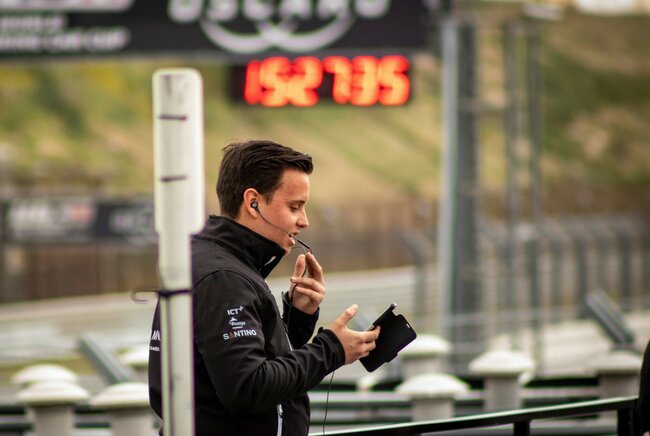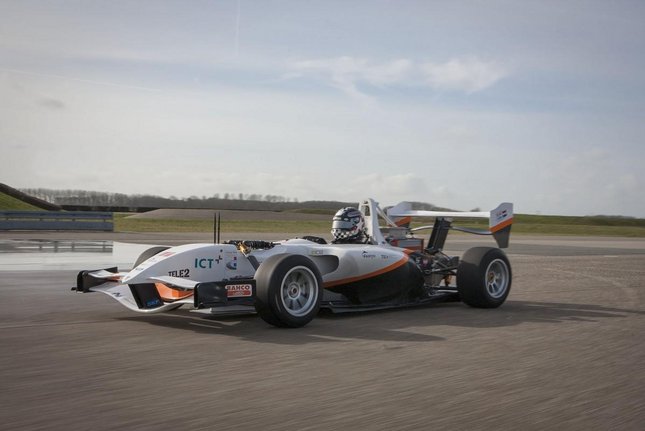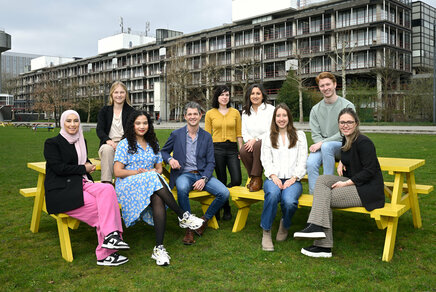‘Step out of your comfort zone, that's where you meet the coolest challenges’

Noud Schoenmakers was part of team InMotion for three years. He helped with their drive to push electric driving and quick charging. “I think InMotion will always stay part of my life, just like the people involved.”
-
Who
Noud Schoenmakers (25), master's student Mechanical Engineering.
Read more -
Team
Noud played various roles in team InMotion from 2017-2020: from concept development and team manager to financial manager and advisory board member. He even photographed the team's vehicle.
Read more -
And now...
He is pursuing a graduate degree in Mechanics of Materials. Noud's research focuses on the fracture mechanics of silver sintered chips.
Read more
What is InMotion's goal?
“We want to inspire students and the business community to use electric vehicles, and we want to challenge the automotive industry to develop quick-charging technology. Because if we, as a student team, can do it, large car companies can too. The dream is still to drive the LeMans 24h with a fully electric vehicle. We feel racing is the way to push the technology to the limit and make a statement.”
What did you learn from your time on the team?
“Soft skills-wise, I gave incredibly cool presentations in front of hundreds of people. This was often only communicated shortly beforehand, so it took a lot of improvisation. It was also a really nice challenge to do the finances. There's so much more money involved in a student team than people expect. I learned a lot from the training the university offered too. For example, I did several days of sales training with Peter Goenee and management training with Roel Wessels. I still benefit greatly from both. The cherry on top was working with EY, the tax office, the university, and Dutch customs to take the correct legal and financial steps to get components from England as quickly as possible. We were genuinely thrown in at the deep end, but we did it. And, were I not part of a student team, I'd never have been so good at using software like Marc/Mentat, Siemens NX, or Matlab. Because you have to figure it all out on your own, you delve much deeper into that software.”

Did your time on the team help in your further studies or career?
“I have a much greater sense of responsibility and now take my studies far more seriously. Plus, I dare approach people more easily and have become much more professional. Once I begin working, I'll already have a ton of experience, right off the bat.”
What was the highlight for you while you were part of the team?
“I think there were two. In terms of achievement, it was when we got everything together and found out we finally had enough sponsorship to buy the components we needed to start building the car. That was really cool.
And the Jumbo Race days. We were invited to display a vehicle. But, on the day, we ended up driving our race car, the Fusion, around the track. You get shivers down your spine when you see the car your team built speed down the straight at 200 kilometers per hour. Especially when you're standing next to RedBull Racing and Racing Team Netherlands on the track and they, open-mouthed, watch an electric racing car zoom by.”
Were the low points too?
“Of course; it was a tough year. Fellow full-timers quit, for which I, as team manager, felt responsible. And the team had 50 active members. I wanted to keep everyone happy, but with 50 opinions, you have no choice but to disappoint someone. That involves difficult decisions.
Added to that, Brexit caused many delays. It's a shame when you work towards something for a year and then can't finish a chassis, which was our goal. It's life getting in the way, we said. And every disappointment brought a great challenge. You learn the most from disappointments.”
Student teams use Challenge-based Learning, where multidisciplinary teams work on real-world challenges. What was that like for you?
“Student teams are mini-companies. They have the same major issues like attracting and training people, organizing PR campaigns, garnering sponsorships, legal challenges, and doing finances. Once you, as a student, get to deal with and learn these things from the bottom up, you really understand how the business world works.
We worked with people doing different courses. Then, you see a problem from a different perspective. I think that enables me to better solve a technical issue, or who to approach to solve it.”
What advice would you give students who are hesitant about joining a student team?
“Visit the various teams and see how they differ. Talk to (former) members. The best thing about a student team is that you can always help out somewhere. Step out of your comfort zone. That's where the coolest challenges are.”
More on our strategy

![[Translate to English:] [Translate to English:]](https://assets.w3.tue.nl/w/fileadmin/_processed_/c/f/csm_BvOF_2024_0319_AEV_license_TUe_Dirk_van_Meer_-_CORE_1__c976e259a5.jpg)

